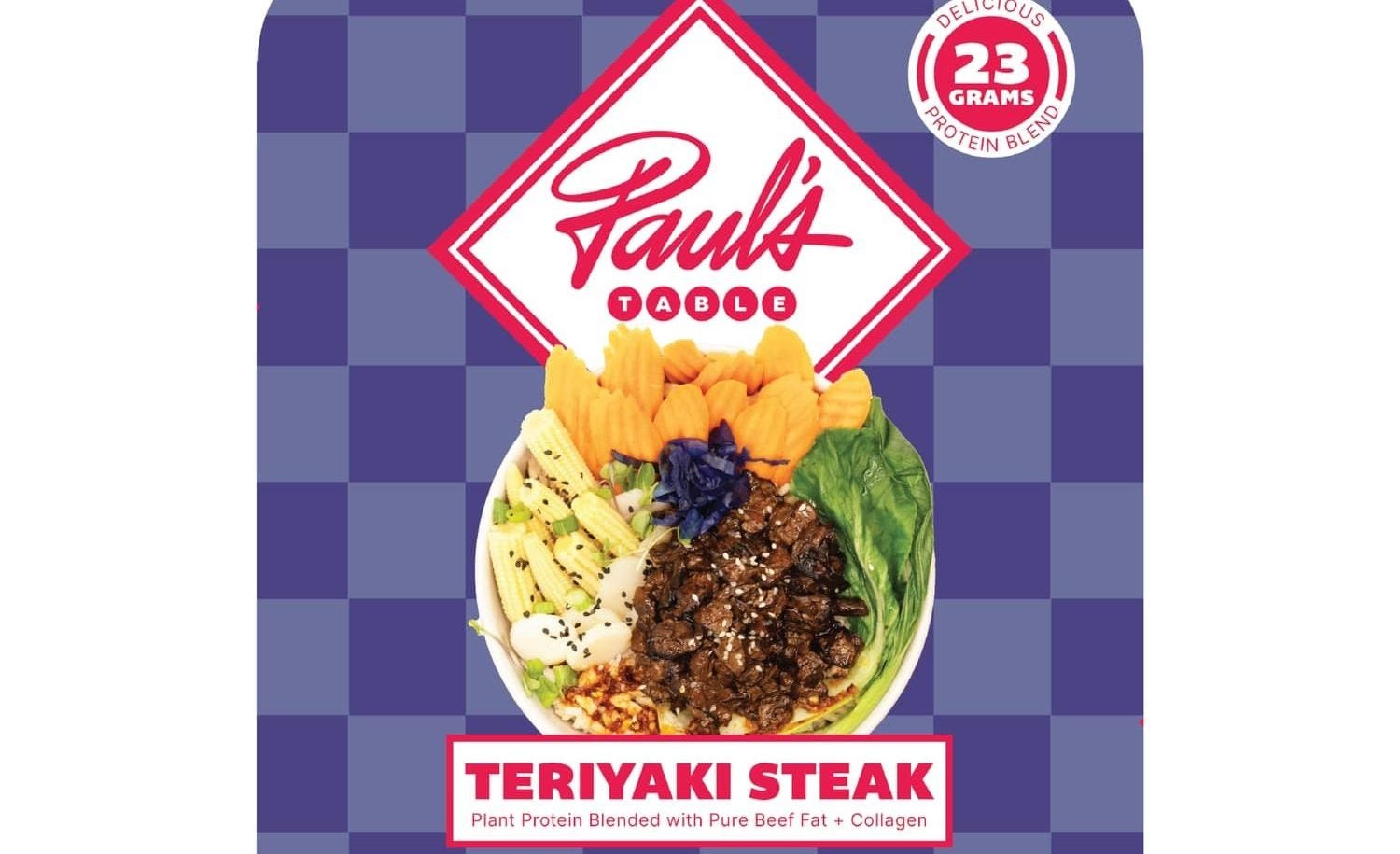
Momentum Foods is seeking to appeal to meat lovers by incorporating animal ingredients in hybrid alternative-protein products to overcome the challenges around texture and taste.
The Los Angeles start-up, founded by former Beyond Meat and Plenty Unlimited engineers Saba Fazeli and Brice Klein, has launched Paul’s Table, a ‘steak’ based on 90% plant-based ingredients and 10% beef fat, bone broth and collagen. A three-strong range has launched in select US retailers.
With funding in hand from the Y Combinator incubator programme, Fazeli said the “reason why we chose to include a small amount of animal ingredients and break out of the 100% plant-based approach was to try to address some of the concerns or some of the needs of the meat-eating consumer” – essentially price, flavour and health.
The Paul’s Table range comprises ready-to-eat alt-steak products “that perform and feel like the real thing without using the real thing”, he told Just Food, adding the browned animal fat from the heating process provides extra flavour.
“I fundamentally believed in the idea that is plant-based meat. Meat alternatives and plant-based meat make so much sense from a sustainability and human health perspective. It just hasn’t become the durable solution that I was hoping for it to be.
“We’re doing a little bit better sustainability-wise. Those ingredients all do a lot of heavy lifting on the sensory side for both flavour, mouthfeel and just general sensory likeliness. It’s really incredible what a small amount of real animal fats added to a mostly plant-based matrix will do.”
Price competitive
Fazeli said Momentum Foods’ “true mission” is to attract meat eaters perhaps seeking an alternative to animal meat and not just to replace it, or people who may have been put off from trying plant-based protein products.
The Paul’s Table line-up of Carne Asada, Teriyaki steak and chopped steak – available in about 20 East Los Angeles retail stores – can compete on price too, he suggested, as the business aims to build scale and a consumer following before launching new products.
“The price per pound to the end consumer in the US at some of these stores is around $11.99 to $12.99, which is pretty exciting to me to start out at the same price per pound as similar products that are animal-based in the space,” Fazeli said.
“We are able to manage our cost-of-goods sold and the ingredient costs by using those animal by-products. They are significantly cheaper than a lot of the flavour house, natural flavours that you would need to use in plant-based.
“We are on a really clear path towards undercutting the cost of meat per pound with scale and maintaining really strong margins for a CPG, which I think ultimately is going to be the key to success for any plant-based or meat-alternatives focused company.”
Momentum Foods is looking to conserve cash, with only the Y Combinator backing and finance from angel investors and an “institutional” venture-capital company secured to date.
“We’ve done our homework on the R&D side of developing these three products and [we have a] lack of desire to continue spending money on and just existing perpetually in the R&D space. We really want to just continue pushing our revenue and sales out in as many retailers as possible.
“We would love in the next year to 18 months to hit about the million mark in revenue. I don’t think I can, in good faith, say that is something that we are going to do with 100% certainty but we’re pushing towards it. We make sure that we have something that folks like, that’s doing well before we add new things.”
Paul’s Table steaks incorporate wheat, soy and brown rice protein isolates, along with flavourings such as garlic and onion powders.
“We needed to think really critically about what base ingredients on the plant-based side we’re going to use so that they would be cost-effective and widely available and easy to source so we don’t run into scaling issues in the future,” Fazeli explained.
“We wanted to try to mitigate some of the consumer concern around highly processed foods by making sure that the ingredient list is very short. This is one of the main efforts of R&D for us is to make stuff that tastes really good but doesn’t use any ingredients that are difficult to understand.”
